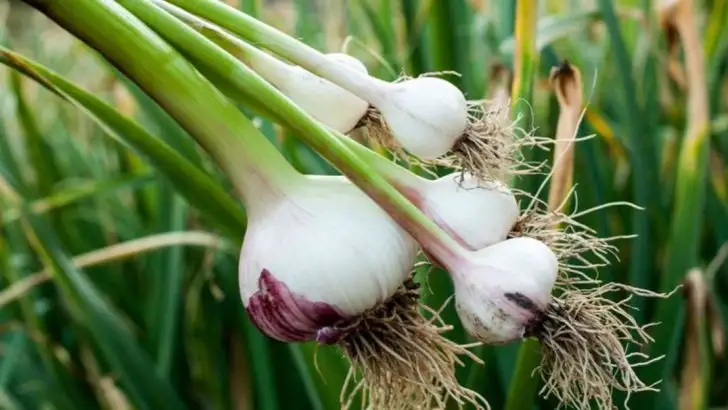If you’re growing apple trees, you don’t have to let the space beneath them go to waste. In fact, planting the right companions can enhance your orchard’s health, boost yields, and even reduce pests naturally. Companion planting isn’t just for vegetable gardens—it’s a smart, sustainable way to support your apple trees through biodiversity.
From fragrant herbs like chives and mint that deter pests, to nitrogen-fixing plants like clover that enrich the soil, the right neighbors can attract pollinators, improve drainage, and help keep diseases at bay. Some companions even double as edible crops or pollinator magnets, making your orchard both beautiful and productive.
Explore these 20 powerful companion plants that will not only protect and nourish your apple trees, but turn your yard into a thriving, harmonious mini-ecosystem.
Chives
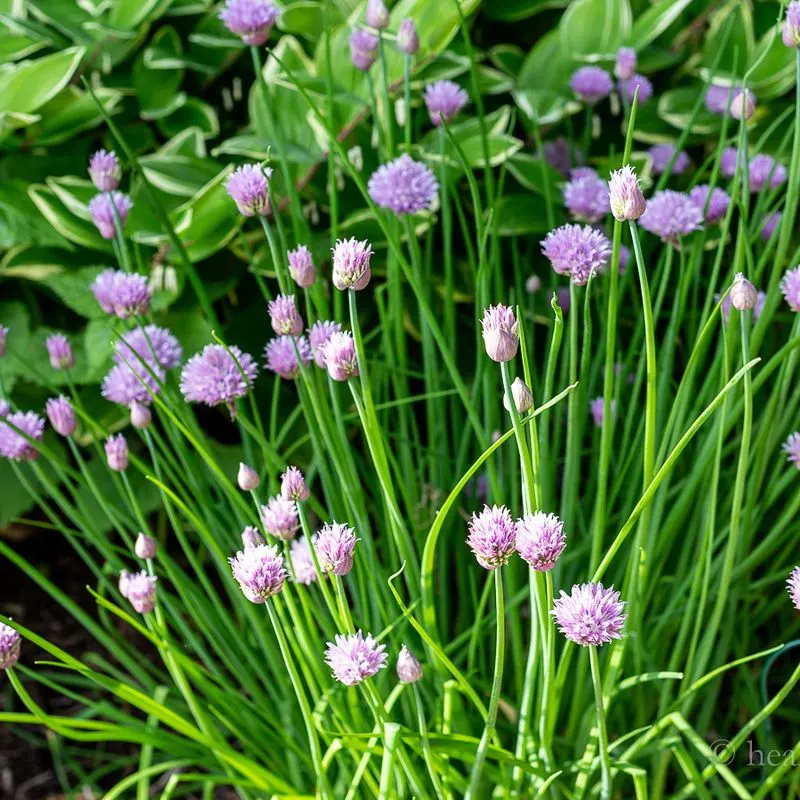
Ever noticed those delicate purple flowers swaying in the breeze? Chives are not just a culinary delight, but they serve a greater purpose in your orchard. Their pungent aroma is a natural deterrent for apple tree pests. Planting them at the base of your apple trees not only keeps unwanted guests at bay but also attracts beneficial insects like bees. The added benefit? Their roots help improve soil structure and drainage. Chives’ ability to ward off notorious apple scabs makes them a must-have in any apple growing garden.
Garlic
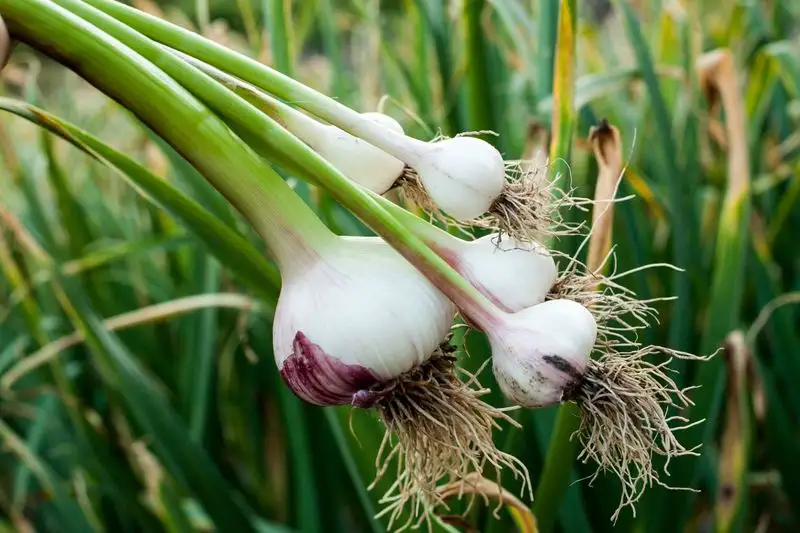
With its robust aroma and rich flavor, garlic is more than just a kitchen staple. Placed near apple trees, its scent confuses and repels pests such as aphids and spider mites. This protective shield allows apple trees to grow more robustly. Beyond pest control, garlic contributes to soil health by breaking down into organic matter that enriches the earth. Its underground bulbs silently work their magic, ensuring your apple trees thrive free from unwanted pest invasions.
Marigold
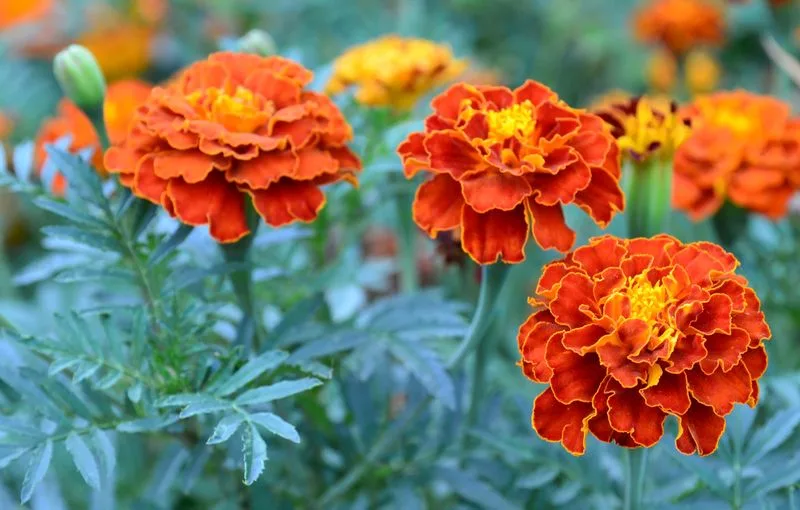
Few plants can boast the vibrant allure of marigolds. These sunny blossoms do more than please the eye; they are known to deter nematodes and other soil-borne pests. Their roots release compounds toxic to harmful soil-dwelling organisms. Planting marigolds around your apple trees forms a protective barrier that keeps the soil healthy and pests away. Their cheerful presence in the garden adds a splash of color, making them a favorite among gardeners seeking both beauty and function.
Comfrey
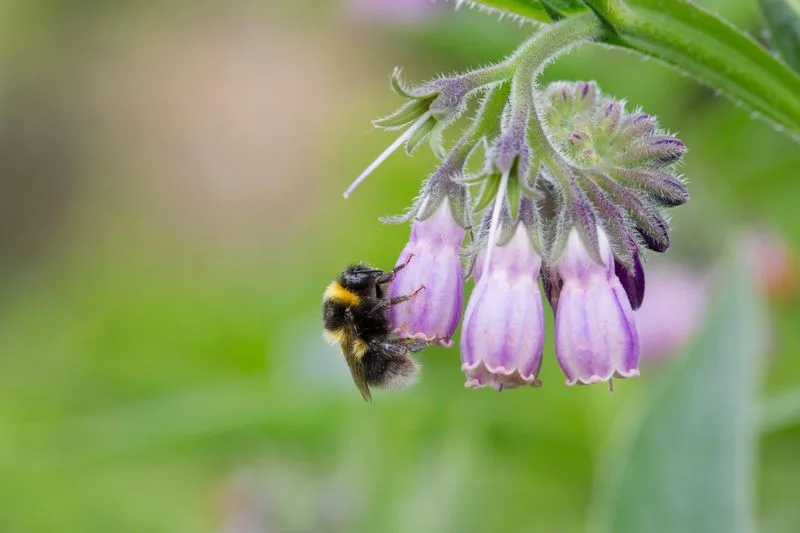
Comfrey might not be the first plant that springs to mind as a companion, yet its role is invaluable. Its deep roots mine nutrients from the soil’s depths, bringing them up to the surface where apple trees can access them. This nutrient cycle enriches the soil and boosts plant health. Comfrey’s lush foliage, when used as mulch, adds organic matter to the ground. It’s a silent workhorse, promoting vibrant growth and strengthening the ecosystem around your apple trees.
Nasturtium
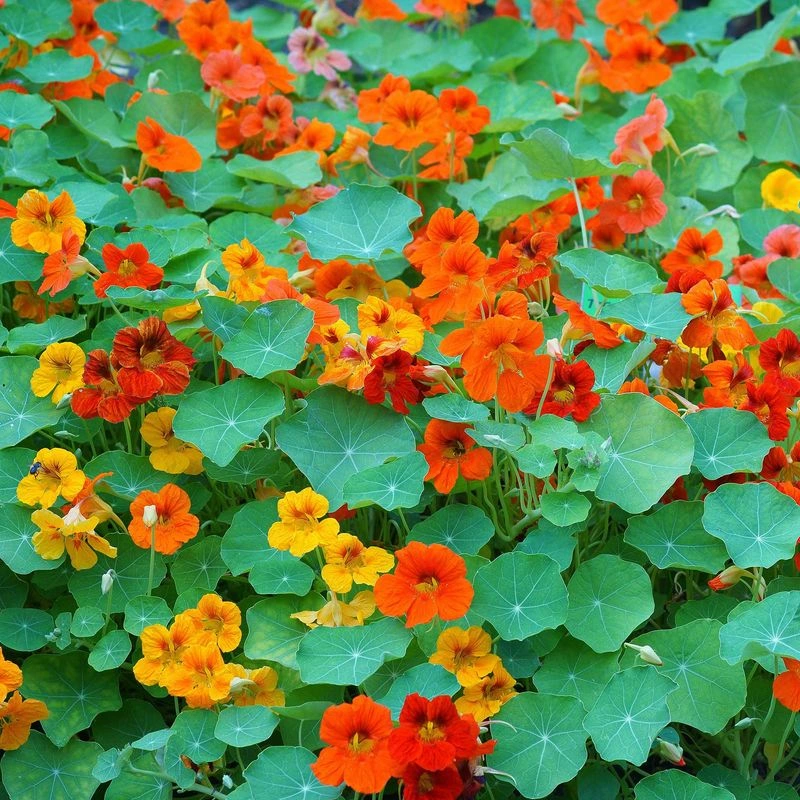
Nasturtiums add a burst of color with their gorgeous blooms, but their beauty is just one of their assets. These plants act as a trap crop for aphids, luring them away from apple trees. As aphids flock to nasturtiums, your apple trees remain untouched. Additionally, their sprawling nature provides ground cover, suppressing weeds and retaining soil moisture. Nasturtiums not only protect but also beautify your orchard, making them a delightful and functional addition.
Dandelions
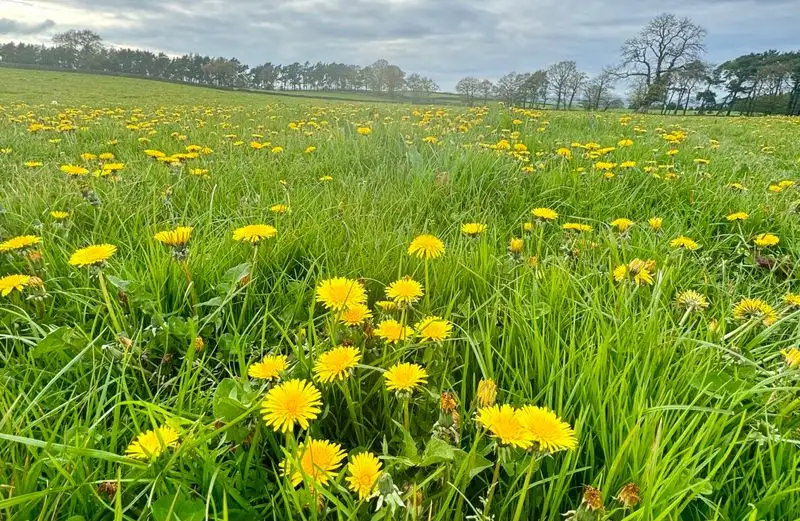
Often mistaken as a weed, dandelions are a gardener’s undervalued ally. Their early blooms provide nectar for pollinators like bees, ensuring your apple trees get the pollination they need. Dandelions’ roots help aerate the soil, promoting better water absorption. As they decompose, they release essential nutrients back into the earth. The presence of dandelions signifies healthy soil, making them an unexpected but valuable companion for your apple trees.
Borage
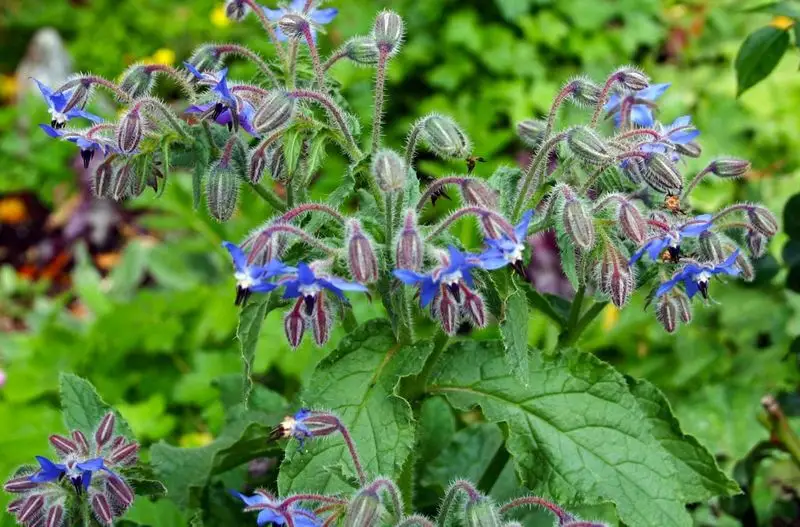
With its star-shaped blue flowers, borage brings a touch of celestial beauty to your garden. Yet, its benefits are firmly grounded. Borage attracts pollinators like bees, essential for apple tree fruiting. The plant’s leaves, rich in minerals, can be used as a mulch, enriching the soil. Borage is known to repel pests like hornworms, creating a safer environment for apple trees. Its presence not only enhances beauty but also boosts the biodiversity of your orchard.
Clover
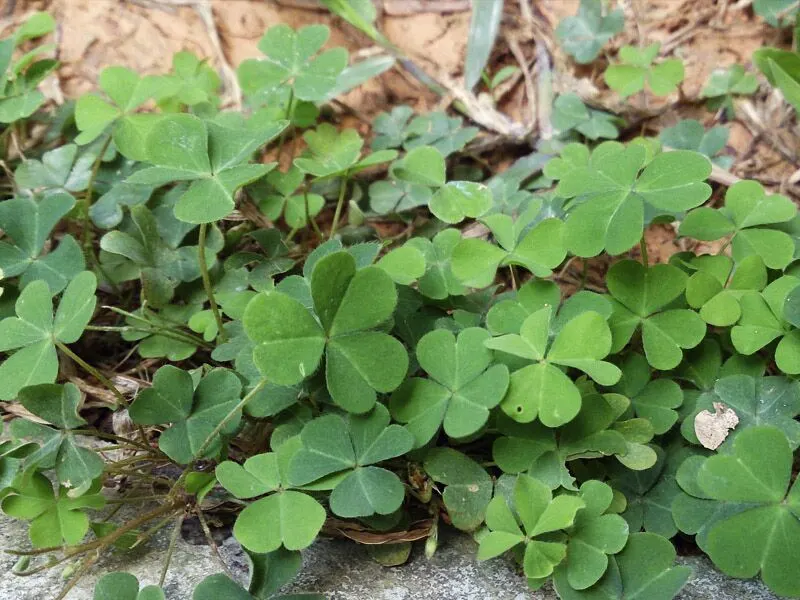
Clover is often seen as a lawn companion, but it plays a significant role in orchards too. As a nitrogen fixer, clover enriches the soil, providing essential nutrients for apple trees. Its dense ground cover suppresses weeds and retains soil moisture. Clover attracts beneficial insects, promoting a balanced ecosystem. Its trifoliate leaves create a lush green carpet, adding visual appeal to your orchard. With clover as a companion, your apple trees thrive in a supportive environment.
Yarrow
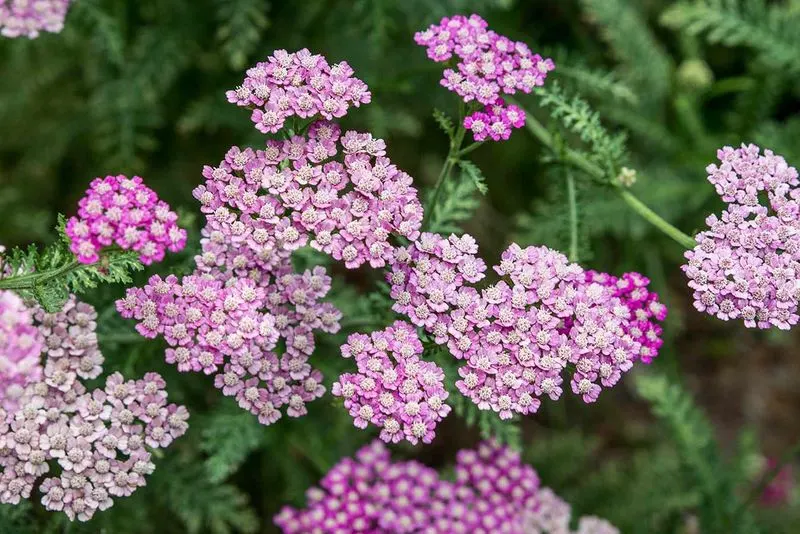
Yarrow’s clusters of tiny white flowers might seem unassuming, but their impact is profound. This plant attracts predatory insects that feed on apple tree pests, providing natural pest control. Yarrow improves soil health by increasing its nutrient content and stimulating plant growth. Its aromatic leaves can be used as a natural mulch to further benefit apple trees. Yarrow’s versatility makes it a wonderful addition to any apple orchard, supporting both plant health and pest management.
Mint
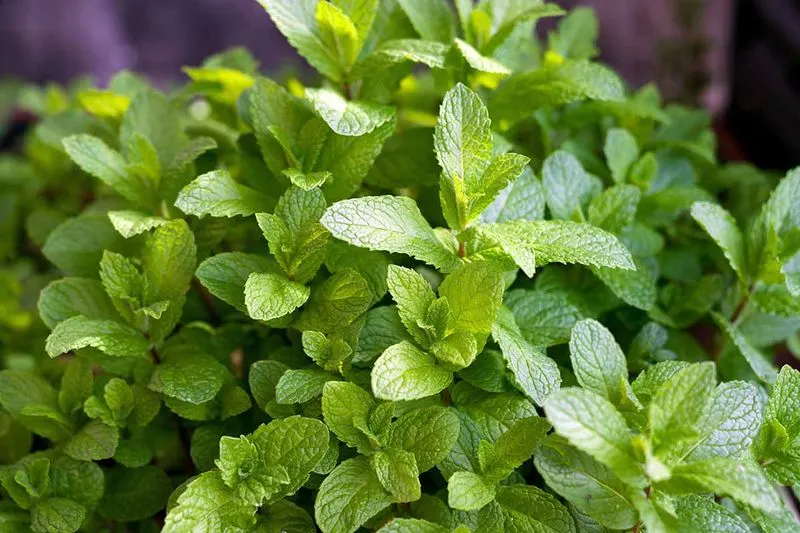
Mint, with its invigorating scent, does wonders beyond the kitchen. Planted near apple trees, it wards off pests like aphids and ants with its aromatic oils. Its rapid growth provides excellent ground cover, suppressing weeds and retaining moisture. While mint can be invasive, keeping it in pots or controlled areas allows it to serve its protective role without overtaking the garden. Its fresh aroma and lush foliage add a refreshing touch to the apple tree environment.
Lupine
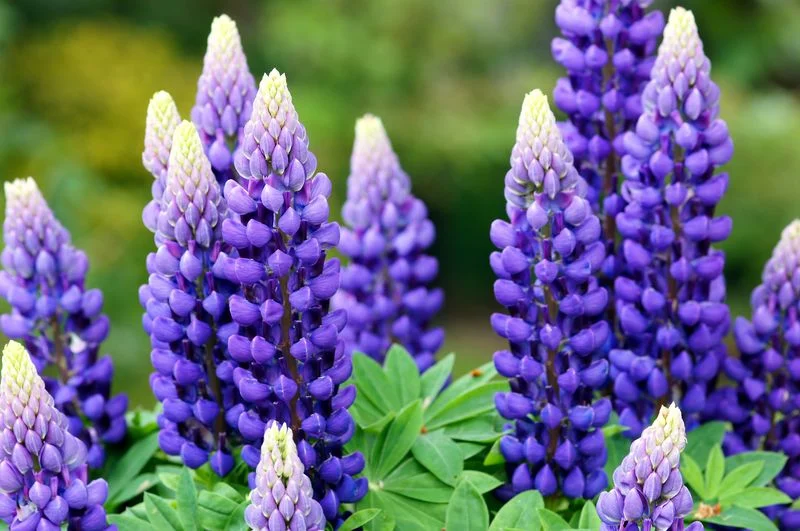
Lupines, with their striking flower spikes, bring both beauty and function to your garden. As nitrogen fixers, lupines enrich the soil, providing essential nutrients for apple trees. Their presence attracts pollinators, boosting fruit production. Lupines’ deep roots improve soil structure, enhancing aeration and drainage. The vibrant blooms create a stunning visual display, making them a charming and beneficial companion for apple trees. With lupines around, your orchard becomes a haven of color and growth.
Calendula
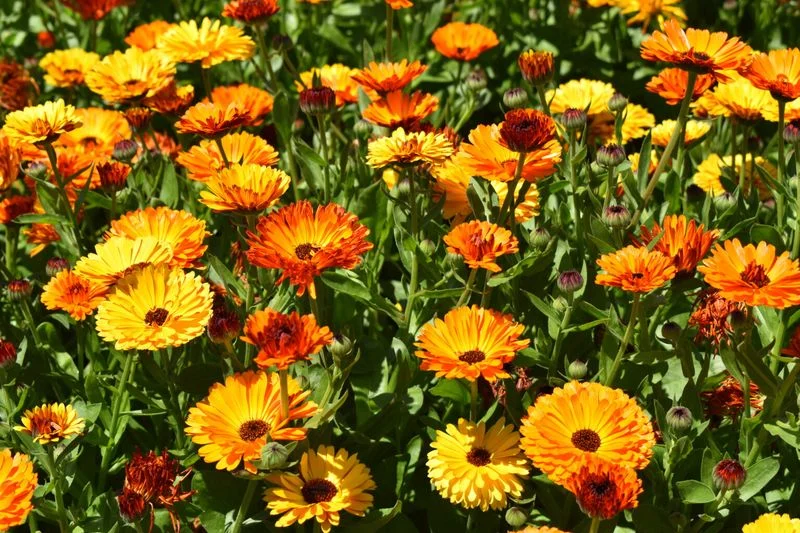
Calendula, often called the ‘pot marigold’, is a garden favorite for good reason. Its bright blooms attract beneficial insects like ladybugs that prey on apple tree pests. Calendula’s roots improve soil health by breaking up compacted soil. The petals of this plant are edible, adding a splash of color to salads, making it both a useful and edible companion. Its presence in the garden creates a dynamic environment, promoting the health and well-being of your apple trees.
Thyme
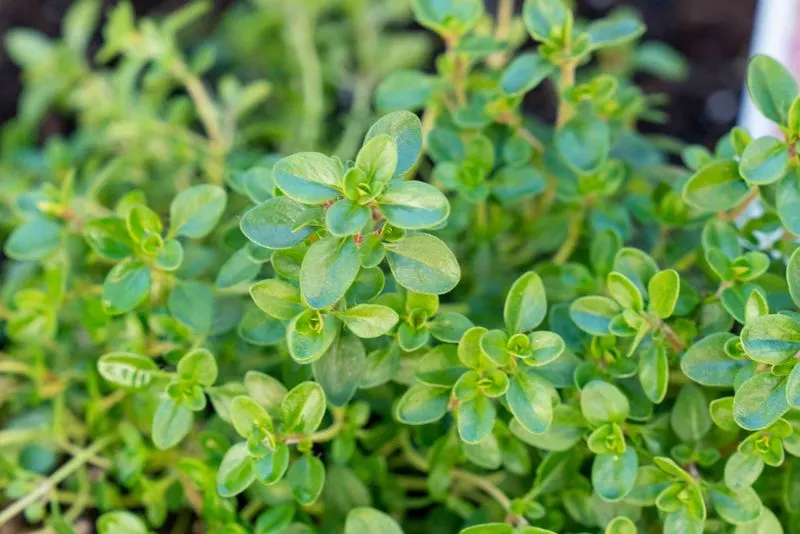
Thyme’s subtle aroma is more than just a culinary delight. This herb deters apple tree pests with its natural oils, creating a safer environment for growth. Thyme’s low-growing nature makes it an ideal ground cover, suppressing weeds and conserving soil moisture. The plant’s tiny leaves offer a delicate texture contrast in the orchard landscape. Its versatility in the kitchen and garden makes thyme a valuable addition, supporting and enhancing the life of your apple trees.
Fennel
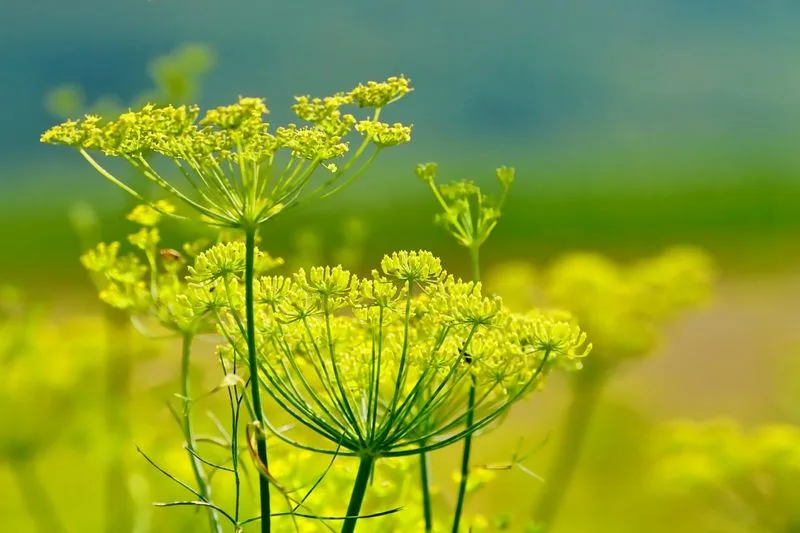
Fennel, with its aromatic fronds, plays a unique role in the garden. It attracts beneficial insects, including ladybugs and hoverflies, which help control apple tree pests. Fennel’s presence boosts biodiversity, creating a balanced ecosystem. Its tall, feathery foliage adds texture and visual interest to the orchard. While fennel can sometimes inhibit the growth of nearby plants, its benefits as a companion to apple trees are significant, enhancing both beauty and function in your garden.
Dill
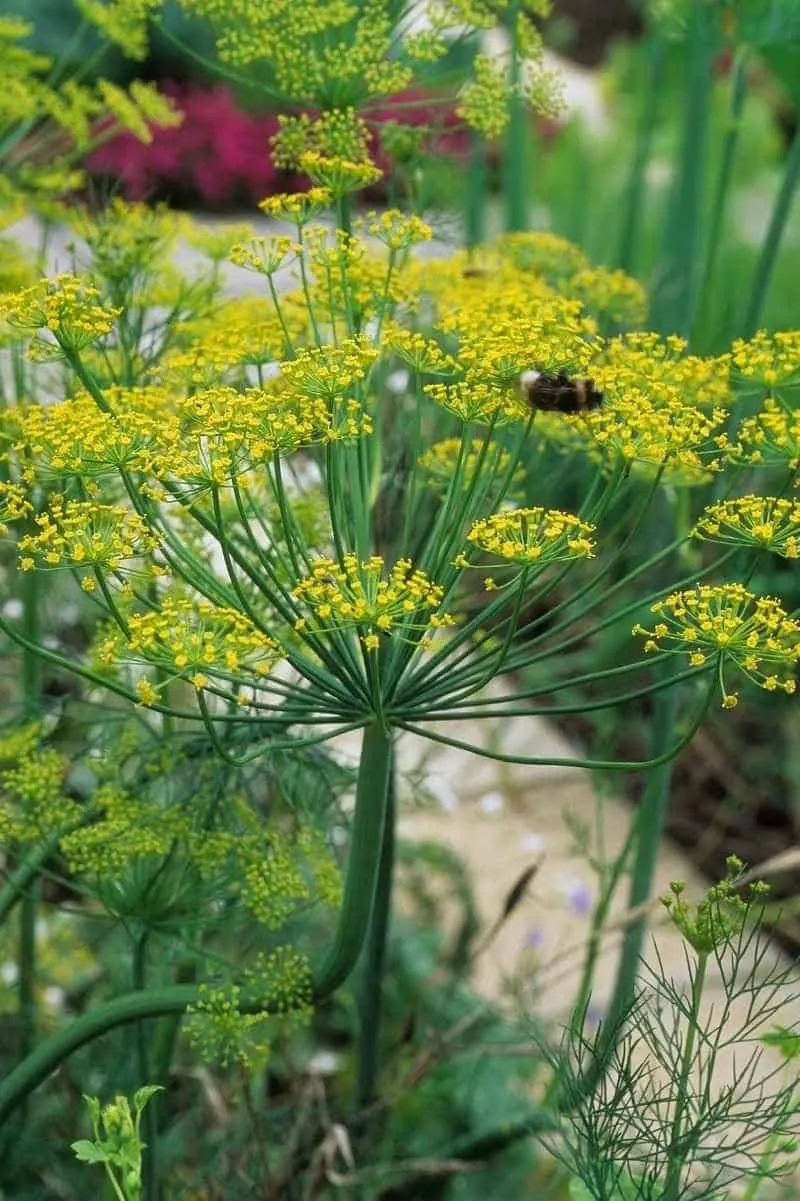
Dill’s feathery leaves and aromatic scent attract pollinators, supporting apple tree fruiting. It also draws predatory insects that control pests naturally. Dill’s ability to improve soil health makes it a valuable asset. It is important to note that dill should be planted at a distance from carrots and fennel to avoid cross-pollination issues. Despite this, dill’s vibrant presence and utility make it a great companion for apple trees, enhancing both garden aesthetics and ecological balance.
Lemon Balm
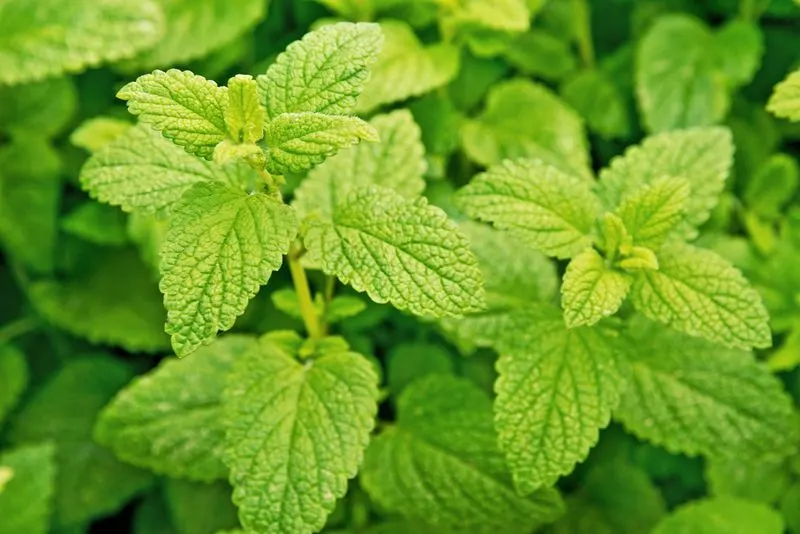
Lemon balm, with its citrusy aroma, is a delight in any garden. Its scent repels pests like mosquitoes and gnats, creating a comfortable environment for apple trees. Lemon balm’s leaves can be used in teas, adding a refreshing flavor. Its rapid growth provides excellent ground cover, suppressing weeds and retaining moisture. While it can spread quickly, controlling its growth ensures it remains a beneficial companion. Lemon balm’s versatility and protective qualities make it a valuable addition to your orchard.
Sunflowers
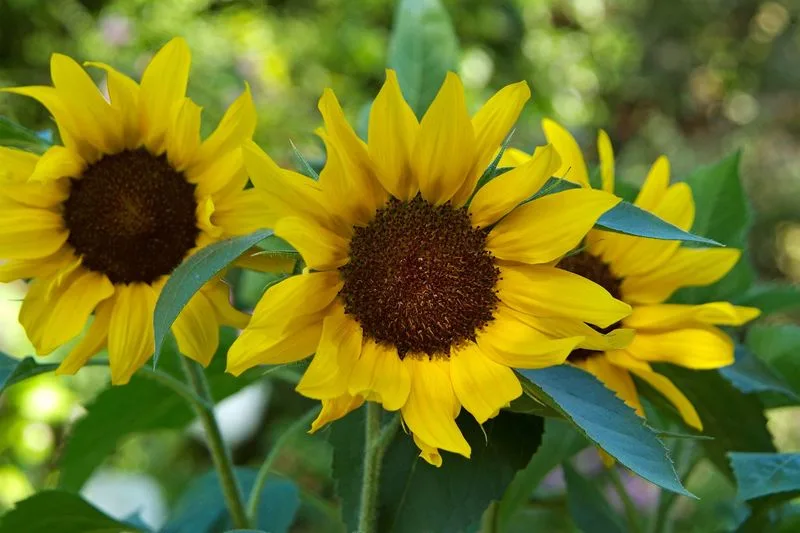
Sunflowers are more than just cheerful garden giants. Their tall stems provide shade, creating a microclimate that benefits apple trees. Sunflowers attract pollinators and beneficial insects, supporting the orchard ecosystem. Their deep roots help improve soil structure, promoting water infiltration. When sunflowers are harvested, their seeds offer a nutritious snack, adding another layer of value. These towering beauties bring both function and charm to your apple tree landscape, making them a cherished companion.
Coriander
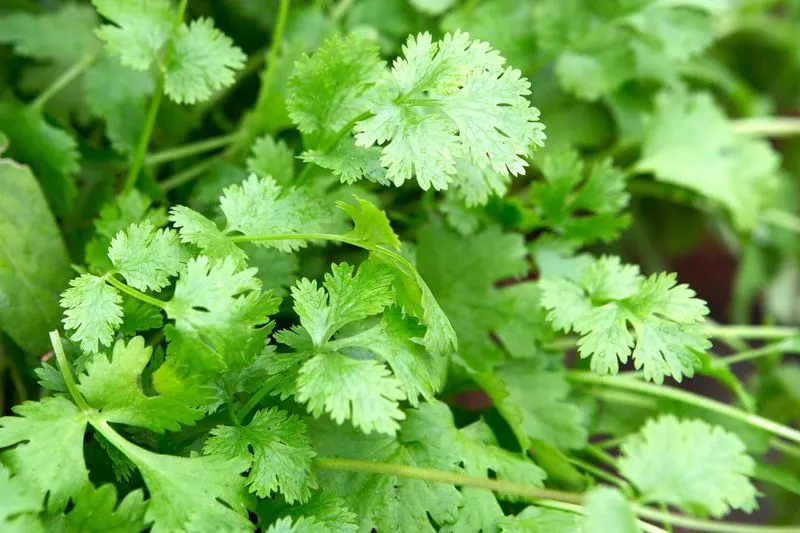
Coriander, known for its culinary uses, also plays a crucial role in the garden. Its flowers attract beneficial insects that prey on apple tree pests, offering natural pest control. Coriander’s aromatic leaves add flavor to dishes, making it a dual-purpose companion. The plant’s ability to improve soil health and support biodiversity highlights its value. With coriander in your orchard, apple trees thrive in an enriched and vibrant environment, benefiting from this multi-talented companion.
Tansy
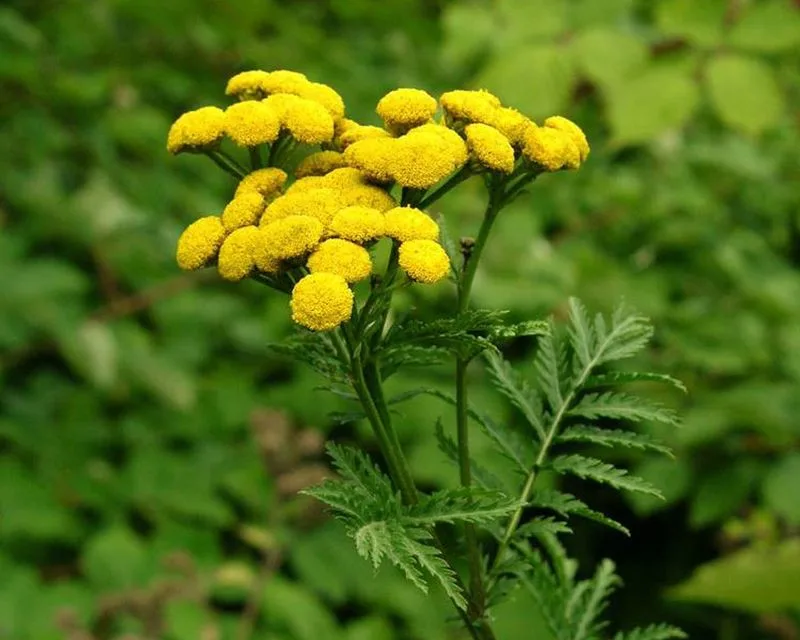
Tansy stands out with its button-like yellow flowers. It’s more than just eye-catching; it repels apple tree pests such as ants and beetles with its natural oils. Tansy improves soil health and attracts beneficial insects, supporting a balanced ecosystem. While it can be invasive, careful management ensures it remains an asset. Tansy’s vibrant blooms and protective qualities make it a valuable companion, enhancing the growth and health of your apple trees.
Wild Bergamot
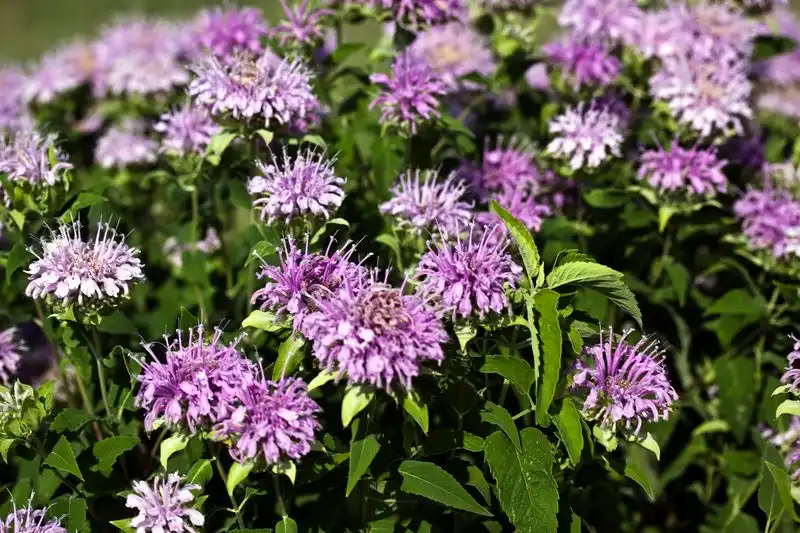
Meet Wild Bergamot, a vibrant addition to your apple orchard. With its stunning purple blooms and minty aroma, this plant attracts pollinators like bees and butterflies, enhancing the pollination of your apple trees. Its natural resistance to deer and rabbits adds a protective layer, keeping unwanted grazers at bay. Not only does its fragrance deter pests, but it also offers a soothing scent that wafts through the garden. Wild Bergamot thrives in sunny spots, making it easy to grow alongside apple trees, and it’s known for its medicinal properties, adding a holistic touch to your garden.

